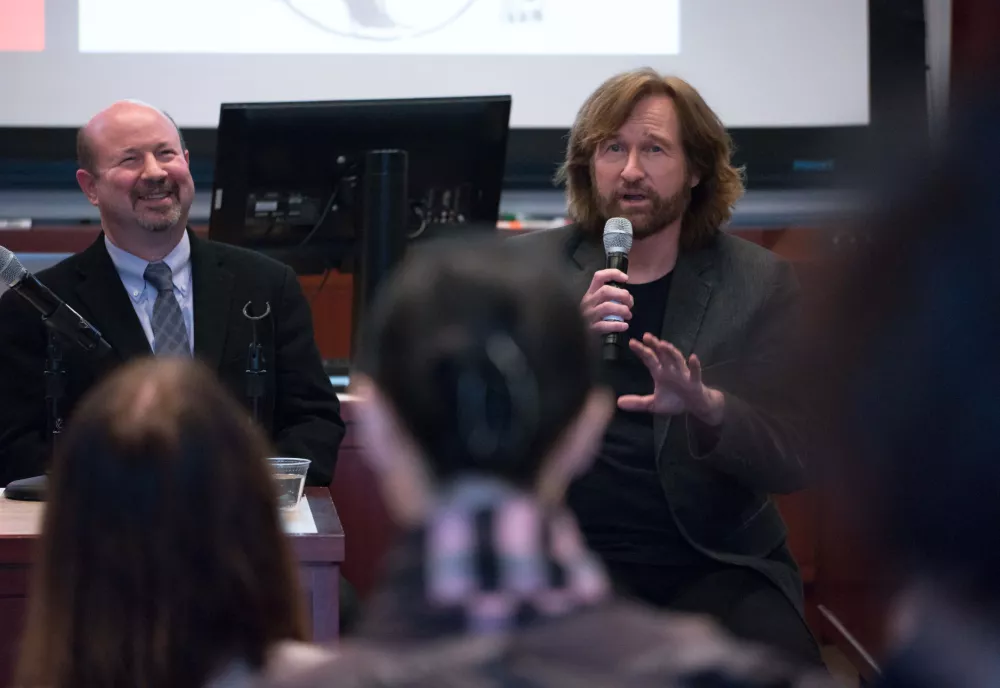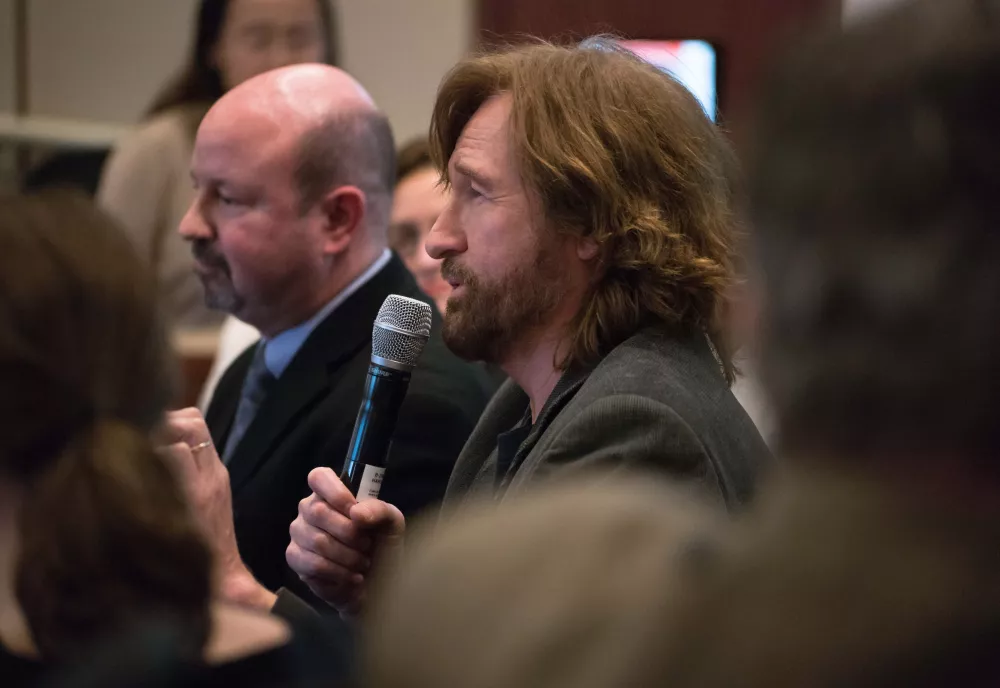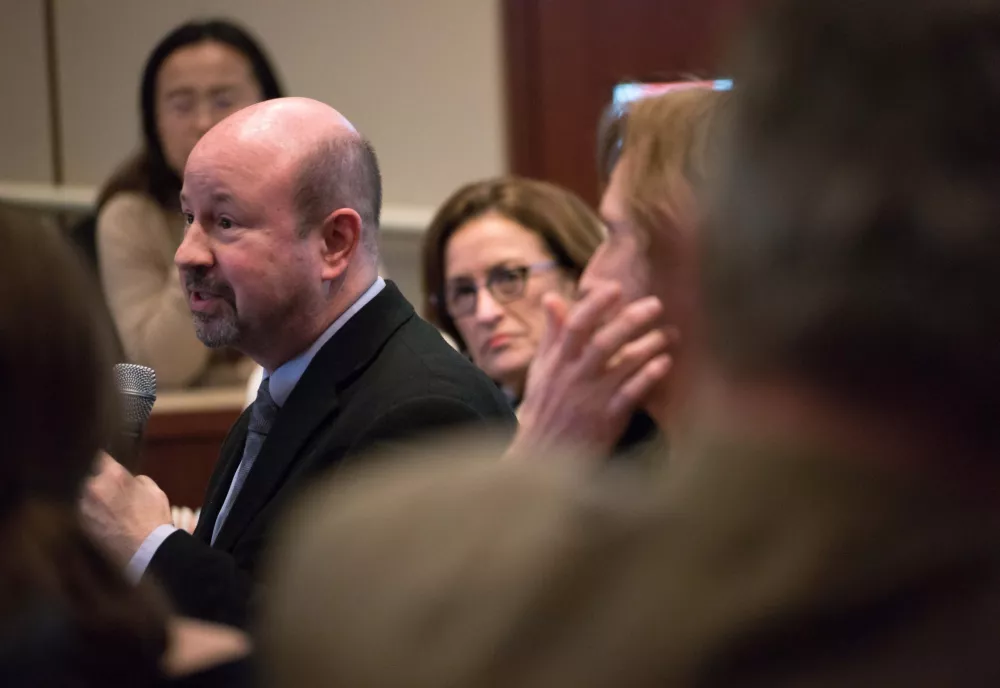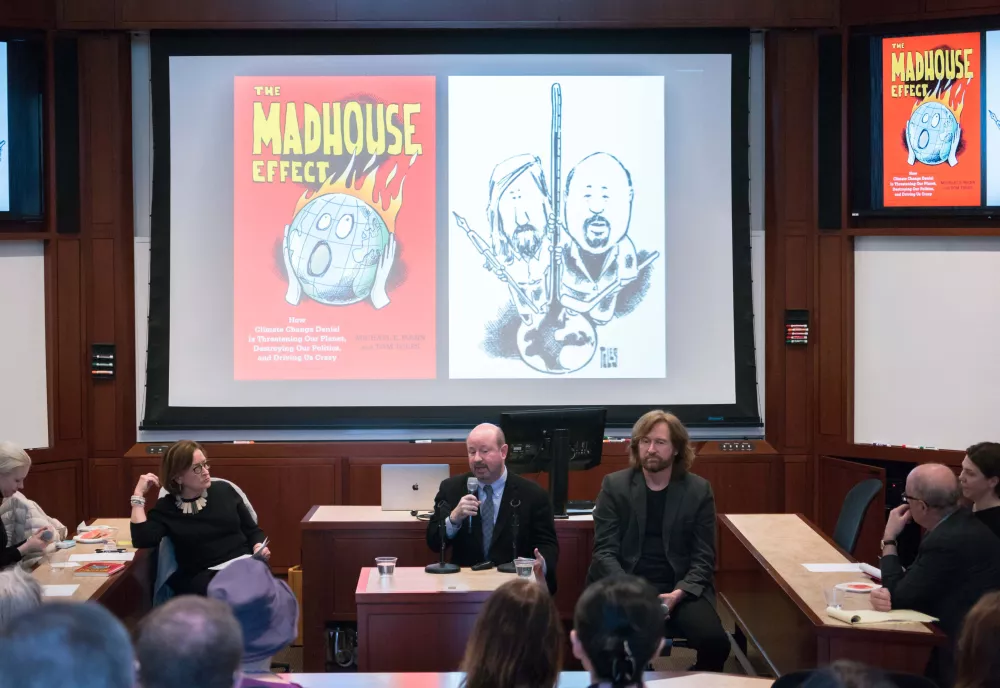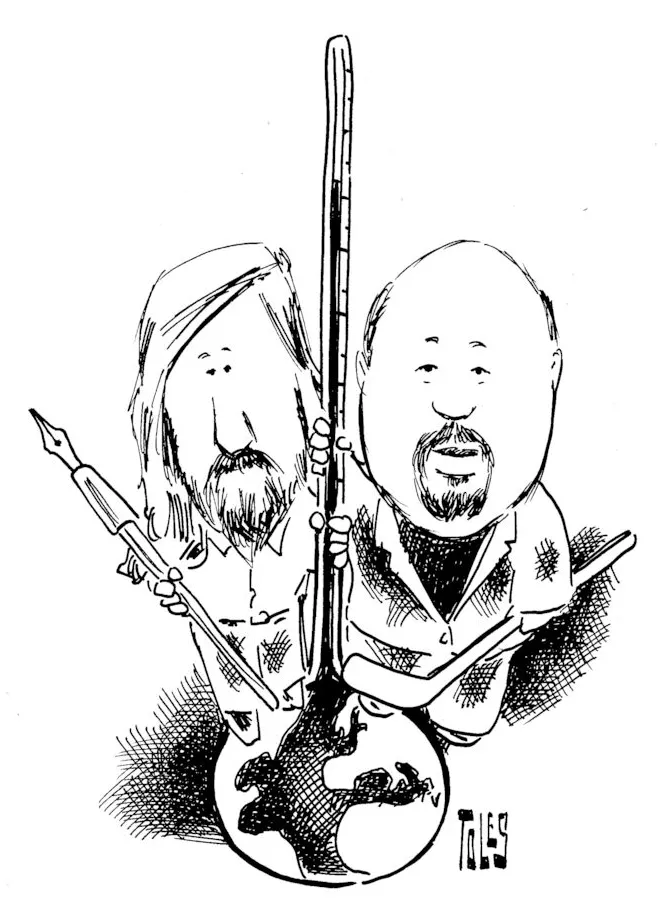
The warming of our planet is an issue that has united most of the world’s nations. Yet the United States has consistently been an outlier country that fosters a culture of denial towards climate change science and action. The facts are relatively straightforward: most scientists believe global warming is occurring and that it is a manmade phenomenon. These statements are believed by approximately 70% of Americans, according to a 2017 Gallup poll. Why then, is climate change denial alive and thriving in America?
Distinguished Professor of Atmospheric Science at Penn State Michael Mann and Washington Post editorial cartoonist and blogger Tom Toles offer insight into this question. In their timely book, The Madhouse Effect: How Climate Change Denial Is Threatening Our Planet, Destroying Our Politics, and Driving Us Crazy, the pair use science, cartoons and satire to examine the science behind global warming and then tackle denialist attempts to refute it, including the financial, ideological and political institutions fueling the climate denial movement.
Mann and Toles came to Harvard Kennedy School recently to discuss climate science denialism in the Trump era with an audience of nearly 100 students and members of the public. Through Toles’ powerful cartoons, Mann’s scientific expertise, and their combined wit and passion, the pair offered an engaging approach to an inescapably dire problem unless action in the U.S. and globally, advances quickly.
The February 14 event was sponsored by the Belfer Center’s Environment and Natural Resources Program and the Shorenstein Center on Media, Politics and Public Policy. Organized and moderated by ENRP Senior Fellow Cristine Russell, it was cosponsored by the Center for Public Leadership and the student Sustainability, Energy & Environment PIC.
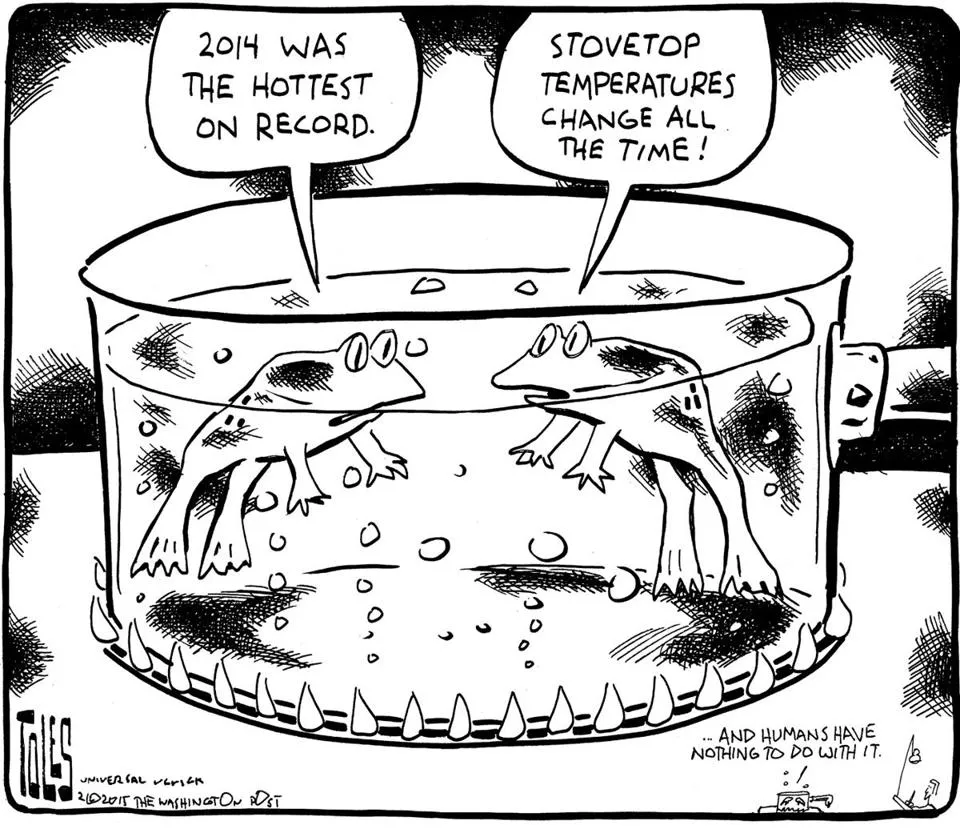
A cartoonist and a scientist walk into a bar…
What Mann and Toles have done in The Madhouse Effect is unique. In it they examine a broad body of scientific work and communicate its magnitude in a clear and emotionally compelling manner. But this is not what makes it so anomalous.
Such close cooperation between a scientist and a cartoonist—an "odd couple" for sure—seems unorthodox. For both authors, their connection seemed unlikely from the start. “Everyone is siloed… I’m in a room by myself all day so I don’t interact with anyone, let alone scientists” explains Toles.
“Sometimes it just takes a chance occurrence,” Mann adds.
Scientific literature has a history of being perceived as dry and inaccessible by much of the public. Mann is the exception. He is an outstanding scientist who has done groundbreaking climate research himself. His work is part of the extraordinary body of international, peer-reviewed research on human-caused climate science. Mann is not only outspoken about these findings, but has an exceptional ability to communicate their gravitas with grace and a good degree of forcefulness.
Mann understands better than most that “science doesn’t select for the best communicators,” so he has collaborated with Toles and other artists to reach out more effectively. “Our hardest hitting commentary today is from satirists and humorists - they have a license to go a bit further…” he tells the late-afternoon crowd at Starr Auditorium. The Madhouse authors spent the day at HKS, including a small informal lunch, hosted by Belfer’s ENRP, with faculty, students and staff.
The unabashedly liberal Toles has amassed a portfolio of thousands of ironic, pointed, and deeply impactful works as Pulitzer Prize-winning editorial cartoonist for The Washington Post, giving him what has been described as “the most powerful cartoonist’s podium in the country.”Driven by the urgency he feels about climate change, Toles has drawn hundreds of cartoons, and started a blog as well, that push for immediate public and private action.
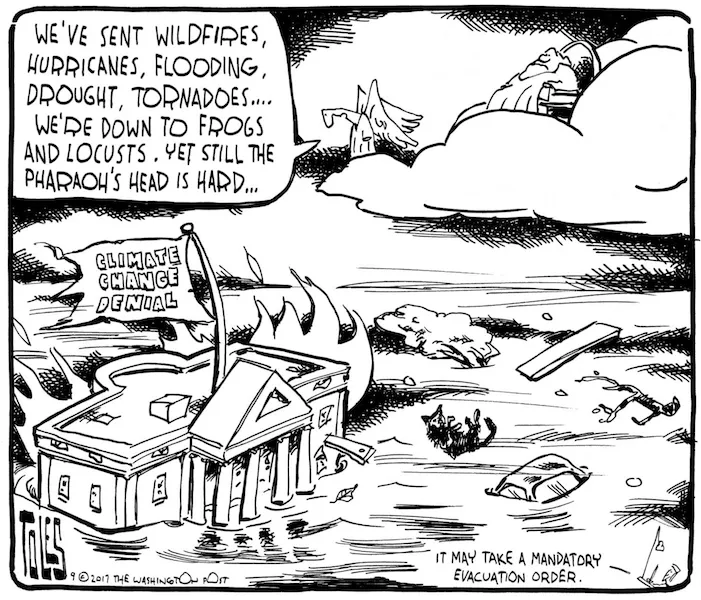
The raging battle
“The good news is that 2017 was not the warmest year on record - it was the second warmest,” quips Mann. The joke is that 2014, 2015, and 2016 respectively have each broken the record for highest global temperature. “The impact of climate change is no longer subtle,” he finishes. Evidence may be piling up, but resistance to meaningful policy change remains stiff, particularly in the polarized climate of Washington. Some have called President Trump the “denier in chief,” under whose leadership cabinet appointments have gone to many opponents of climate science and action. The Republican Congress continues to fight hard against meaningful legislation to curb greenhouse emissions from fossil fuels. As Mann puts it, “The foxes have taken over the hen house, and are renting out rooms to more foxes in the EPA and other agencies.”
“I prefer the word ‘crisis’ but it is definitely a fight that we have to get on the right side of,” says Toles.
The two authors posit that we are living in a culture of denied truths. “The one salient thing that’s been at the heart of the climate change debate is misuse of facts,” laments Toles. This has increased the intensity of what some have come to see as an inherently unequal battle.
“Scientific illiteracy is essentially the food which anti-science feeds on,” says Mann. Those who do not have a base level of scientific understanding will easily fall prey to manipulation through misuse of data. This gives deniers an advantage.
Being restricted by the bounds of scientific findings and the carefully crafted language of science limits the options available to Mann and Toles, whereas opponents of climate legislation are able to manipulate and even fabricate information as well as fund disinformation campaigns and politicians to oppose action. “We can’t engage in the tactics our opponents engage in… It’s an asymmetric war - we’re fighting with one arm tied behind our backs…,” explains Mann.
An audience member asks the pair to say something positive. The room shares a moment of laughter, but the authors admit that ultimately the message is optimistic. The world is doing more than ever before to address climate change, despite recent setbacks. And even in the U.S., Gallup polls show that citizens are becoming steadily more aware, concerned and supportive of stronger actions.
Gallery
Notes
The paperback edition of The Madhouse Effect is expected this June and will feature a chapter on the state of affairs under the Trump administration.
All cartoons are used with the express permission of Tom Toles.
Follow Michael Mann on Twitter @MichaelEMann and Tom Toles @TomTolesToons.
Edel-Hänni, Jonathan. “The Madhouse Effect: A Climate Scientist and an Editorial Cartoonist Team Up to Tackle Climate Change Denial.” Belfer Center for Science and International Affairs, Harvard Kennedy School, March 1, 2018

